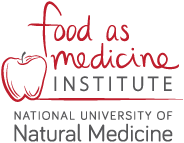While we can practice incorporating healthy habits in our life all year round, there is no better time than the start of a new year to make changes and practice healthy living!
As fun as the holidays can be, they sometimes take a toll on our health. We travel or follow different routines while spending more time with family and friends. The winter chill causes us to move less and sometimes, we indulge a bit more than usual. When we are trying to improve our health in the New Year, it is important to go back to the basics!
We can start by nourishing our bodies with wholesome foods. The easiest way to do this is to cook with individual ingredients rather than eating processed foods. Choosing whole foods such as vegetables, whole grains, fruits, legumes, nuts, seeds, fish and meats gives your body the building blocks it needs to maintain health. While it is best to buy organic ingredients whenever possible, it is also important to take into account the time of year and to nourish your body with more seasonal and local foods. Take a look at the Environmental Working Group’s guide called the Dirty Dozen and the Clean Fifteen to see which foods are most important to buy organic. When cooking a meal with whole foods, relish in the experience by preparing the meal with love and creating a beautiful plate for yourself and your family. Eat slowly, and savor each and every bite.
Another basic necessity of life is sleep. According to the National Sleep Foundation’s Sleep Health Index, forty-five percent of Americans said that either poor or insufficient sleep affected their normal activities at least once during the seven days beforehand. It is important to recognize all of the benefits and amazing powers of sleep. Adequate amounts of sleep can decrease the risk for cardiovascular disease, obesity, infections, and depression.
Besides making sure to get the amount of sleep your body needs, you can also practice good sleep hygiene. As humans, we are made to reflect the laws of nature. While our modern lifestyle does not always allow for this, we should strive to sleep with the dark and wake with the light. Our bodies follow this circadian rhythm each and every day. Along with this biological rhythm, we produce something called melatonin at night. The synthesis of melatonin is activated by darkness and inhibited by light. Melatonin is a hormone that is produced primarily by the pineal gland, but is also produced in other places in the body, such as the gastrointestinal tract. Besides helping to regulate our ‘internal clock,’ melatonin has been shown to act as an antioxidant, prevent cardiovascular diseases, protect the gastrointestinal system, and may even play a role in the prevention and treatment of cancer.
When we go against this rhythm of nature and continue to expose ourselves to artificial light at night, it inhibits production of melatonin. This “artificial light” can come from technology such as computers, televisions, and cell phones, and even from lights outside your window and in the home. Trying to eliminate or reduce your exposure to artificial lights before bedtime and while you’re sleeping can aid in the natural production of melatonin.
Something basic we often forget to practice is self-care. It is easy to simply forget to take care of ourselves with all the commitments we have in life to our work or our families and friends. As humans, we are all unique, and so ‘self-care’ can mean something different to each one of us. For some of us, self-care may mean exercising each day. For others, it may mean drinking a cup of afternoon tea or taking a hot Epsom salt bath in silence and gratitude. Or it could mean meditating each morning and night to open and close each day. For a lot of us, it may mean letting go of something in our lives that is no longer serving us. Through mindfulness, we can each identify what self-care means for us. Practicing acts of self-care with intention each day can increase our awareness of our bodies. With awareness brings the ability to change and more room for growth and healing.
If given the right circumstances, our bodies have an amazing ability to heal and be healthy. Eating whole foods, getting quality sleep and practicing self-care are three actions you can take now to improve your health. This year, choose to practice mindfulness and to live with intention. Choose to nourish your wonderful and amazing bodies in every way that you can.
References
Malhotra, Samir et al. The Therapeutic Potential of Melatonin: A Review of the Science. Medscape General Medicine. MedGenMed. 6(2):46. (2014). Web. 10 Jan 2016.
The Benefits of Slumber. U.S. Department of Health and Human Services: National Institutes of Health News In Health. Apr 2013. Web.
Susan Mitchell is currently a student at the National College of Natural Medicine. She is from Block Island, Rhode Island and received a Bachelor of Science degree from Roger Williams University. She is in her third year at NCNM working toward a doctoral degree in Naturopathic Medicine and a Master in Acupuncture degree. She has been involved with the Food As Medicine Everyday classes and is passionate about nutrition and cooking with fresh, whole ingredients. Outside of school, she enjoys traveling and creating artwork.





